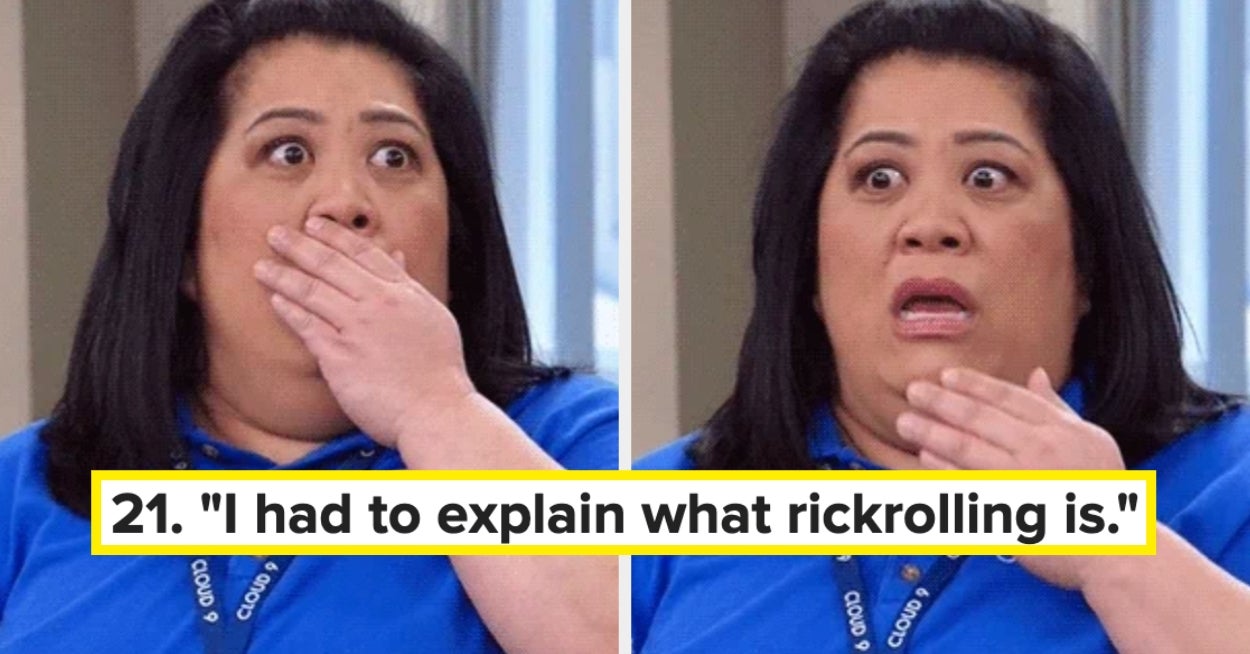
"Our receptionist at work was in her early 20s, and she was calling another place of business. She told me to come listen to the phone because it was making a weird sound. I then had to explain to her what a busy signal is. I had an intern refer to the '90s as 'the late 1900s.' WTF? It's true, but it makes my teenage years sound like The Oregon Trail or something."
"I knew I was old when I had to tell an employee our safe code, and that they had to hit the pound sign at the end. She looked at me, confused, but I recovered quickly and said to hit the hashtag symbol. They started calling me 'Mom' and 'Mama Bear' over the walkie-talkies. I find it kind of endearing, actually. A coworker asked me if I had any Advil. He said he figured the 'mom of the workplace' would have some. I did."
"I work part-time at a brewery as a 'beertender' for extra income and free beer. I'm 45, and most of my coworkers are in their early 20s. I like all of them, but boy, did I realize quickly that I was out of touch with today's slang! We were trying a new beer, and my coworker was like, 'Damn, this really slaps.' That was followed by someone else who said, 'No cap.'"
Younger coworkers often highlight generational differences through unfamiliar technology, slang, and cultural references. Examples include needing explanations for busy signals and keypad conventions, referring to the 1990s as the "late 1900s," and using nicknames like "Mom" or "Mama Bear" in the workplace. New slang such as "this really slaps," "no cap," and "say less" can confuse older employees. These moments can make older workers feel out of touch but also create opportunities for lighthearted bonding, informal mentoring, and mutual learning as coworkers share remedies, knowledge, and contemporary language.
Read at BuzzFeed
Unable to calculate read time
Collection
[
|
...
]